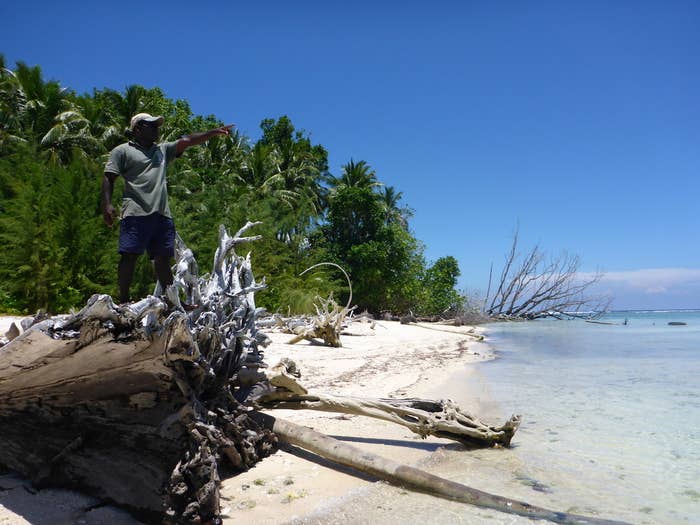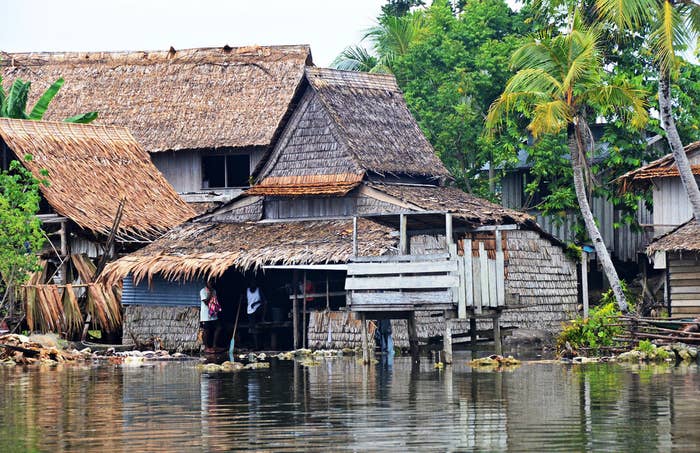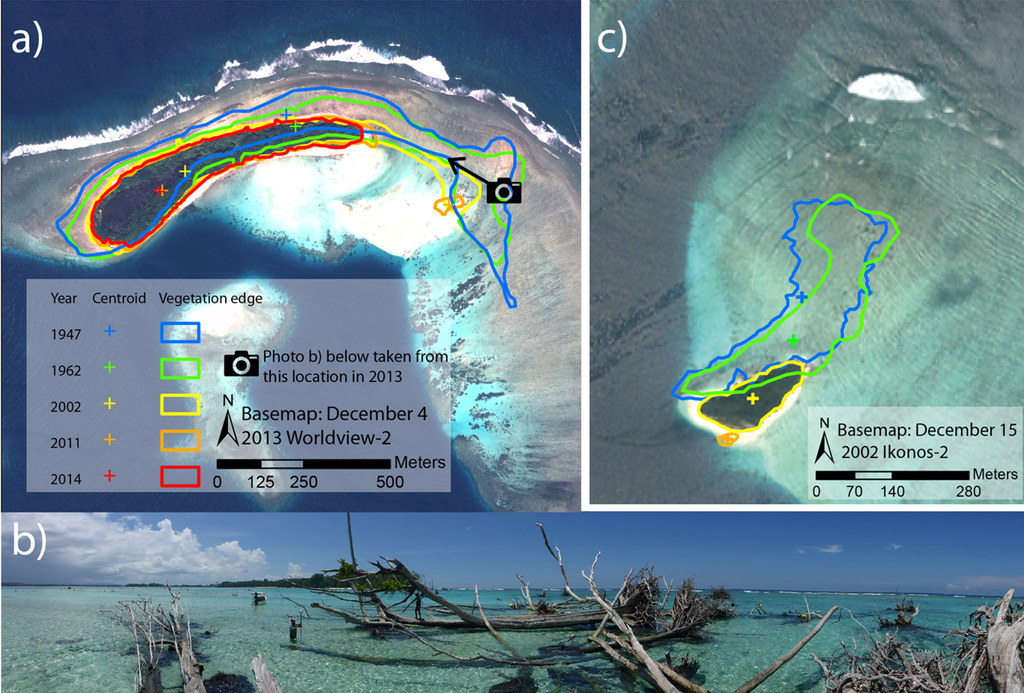
Rising sea levels, caused in part by climate change, have swallowed five islands in the Pacific Ocean, a new study has found.
Published Friday in the peer-reviewed journal Environmental Research Letters, the study found that at least five of the Solomon Islands are now completely submerged due to rising sea levels and erosion, while another six have been partially destroyed.
The Solomon Islands in the western Pacific includes more than 1,000 islands. The islands' population of 560,000 people is spread across the archipelago. Many communities are located in low-lying coastal areas.
Researchers examined 33 reef islands in the area using images dating back to 1947 and found that five measuring between about 2 and 12 acres had vanished over time.

Erosion of the shoreline at two locations had destroyed villages that had existed on the respective islands since at least 1935, leading to community relocation. Nuatambu Island experienced such severe coastal recession between 2011 to 2014 that 10 homes were lost to the sea.
Many residents from Nuatambu have relocated to the adjacent island of Choiseul, while some low-income families have built temporary housing and continue to live in vulnerable areas on the island.

High wave energy has played an important role in which islands experienced the most coastal erosion, with more-sheltered islands experiencing significantly less noticeable change, researchers found.
"Some islands that were exposed to sea-level rise and strong waves are vulnerable and have eroded away," Dr. Simon Albert, the study's author, said to BuzzFeed News. "Other islands that are in more sheltered locations without high wave energy are very resilient."
"This tells us that we need to understand which areas are most vulnerable and work with local communities to adapt to these changes," he added.
The study is one of the first to look directly at the link between shoreline recession and rising sea levels. The Australia-based researchers hope the study will assist vulnerable communities to adapt to additional sea level rise that is expected in the coming century.
